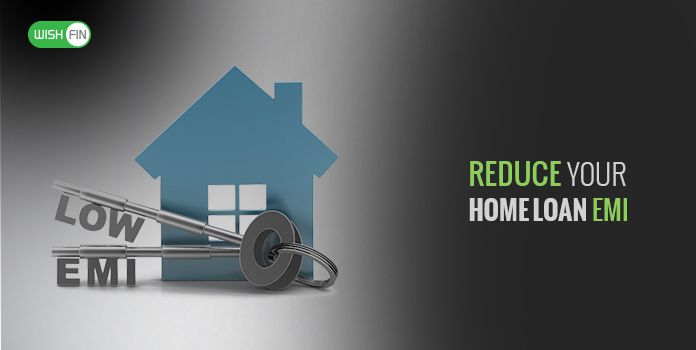While buying your first house, you stretch yourself financially and exhausts all your savings. You also try to avail the maximum possible home loan so as to be able to buy the best possible property with the available resources. Home loans are long-term responsibilities with EMIs that must be paid for at least 15-20 years. During these years, your financial responsibilities change dramatically, and you may find yourself unable to pay your home loan EMI. Though most lenders would be flexible if they are informed in advance of a single default, repeated defaults can have far-reaching effects. However, if you miss an EMI, you may have to pay the missing amount along with the next month’s EMI in the following month.
Table of Contents
What happens if you skip one or two house loan EMIs?
It’s not a major problem if you miss one or two EMI payments due to certain circumstances. The bank will issue a brief warning in this situation. However, If you fail to pay your EMI for three consecutive months, it will be labeled a red flag. You will be marked as defaulters by the bank, and you will receive a notice.
There is a chance that the lender may grant you a grace period if you have a good payment history and valid reasons. However, the default will have a negative impact on your CIBIL score.
Consequences When you Default on your Home Loan.
The consequences on Home Loan Default are:
1. Late Fee is Imposed
In case of Home Loan default, you will be charged late fees, penalties, and in some situations, penal interest. Generally, the penal interest is 1-2 % of the EMI. Therefore, depending on the circumstances, you may be required to pay penal interest on the whole amount owed for the time of default. This would be in addition to any lender-imposed late fees.
2. Possession of the Collateral
The banks and financial institutions often consider a loan default as a Non-Performing Asset (NPA) after three consecutive EMI defaults. Thus, they begin with the process of recovering debts under the Securitisation and Reconstruction of Financial Assets and Enforcement of Security Interest Act (SARFAESI Act) of 2002. You end up receiving a legal notice and are given 60 days to settle your debts. However, if you don’t pay your debts within 60 days, banks have the right to seize your collateral under the SARFAESI Act. Under the SARFAESI Act, and your collateral can be seized without a court order.
3. Auction of the Collateral
When the dues aren’t cleared even after 60 days, the bank will send you another notice with the value of the collateral, if it’s a property or jewellery, and the date of it’s auction. If the collateral is a life insurance policy, it is surrendered to the insurer prematurely, with the funds going to the lender.
4. Impact on Credit Score
Even missing a single EMI payment will appear on your credit report, lowering your credit score. A single default on a loan might lower your credit score by 50-70 points.This not only impacts your credit score, but it also impacts your creditworthiness for your future borrowing plans. Banks consider you as a high-risk borrower, which reduces your chances of getting a loan. Even if you are approved for a loan, it is subject to strict terms and restrictions.
How can you avoid Home Loan Defaults?
To avoid home loan default, you might ask your lender for a lower EMI and more efficient financing. You can approach the lender and request an EMI-free period if there is a gap in your source of funding. In the situation that you have lost your job or temporarily stopped your business operations, banks may grant you a three- to six-month EMI payment waiver. The lender, on the other hand, has the option of charging interest on the outstanding loan amount for this time at a later stage. Making partial payments to reduce the EMI load is another option. This may be done with the help of a home loan overdraft. Making a partial payment to your overdraft account might reduce your financial stress anytime you have extra cash and an active home loan. Without affecting the home loan interest rates.
Rights of a Home Loan Defaulter
There are certain rights of an applicant in case of Home Loan Default that are as follows:
The right to adequate notice
A right to adequate notice ensures that you are notified far in advance of a potential future action by the lender, giving you enough time to respond.
2. Right to a fair asset valuation
The property’s worth is generally more than the lender’s entire debt. However, the lender may be simply interested in realising as much value as possible in order to collect the debt, which may not be in the borrower’s best interests. The RBI has established rules for collateral valuation in order to protect borrowers’ rights to a fair valuation.
3. The right to balance proceeds
A borrower is entitled to the balance amount if the lender auctions the collateral for a loan to recover the dues and the sale profits are greater than the total dues.
4. The right to humane treatment
Lenders regularly use recovery agents to force borrowers to return their debts, but their conduct should never violate norms of decency, civil behaviour, and ultimately the code of commitment to customers signed by the banks.
Banks and financial institutions allow you more than enough time to repay your loan since auctioning or selling collateral is a time-consuming and inconvenient process that they like to avoid. It’s better to discuss with your bank and explain your current situation if you know the possibility of default is high.
If you can convince your lender, you may be granted a fair period of a few months during which you can pay off all of your debts. They may even restructure your loan by extending the tenure, reducing your EMI.




